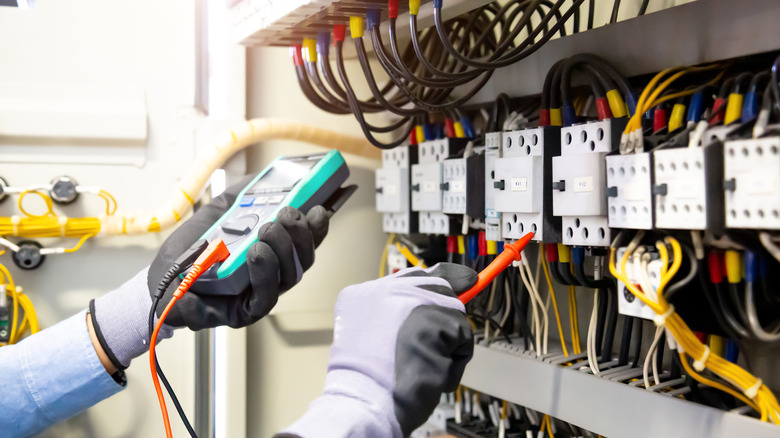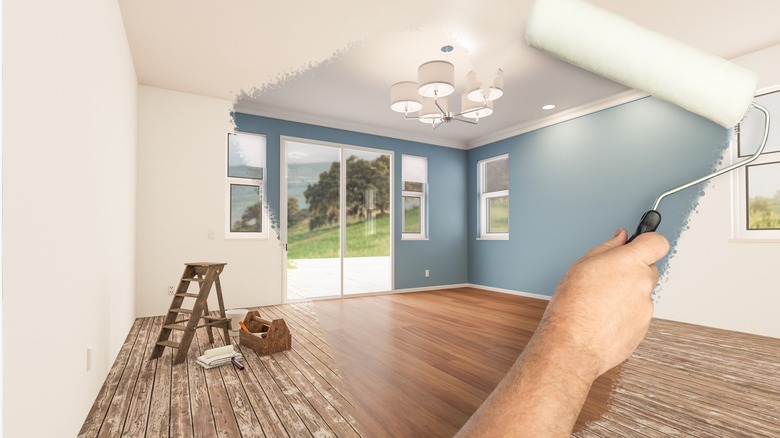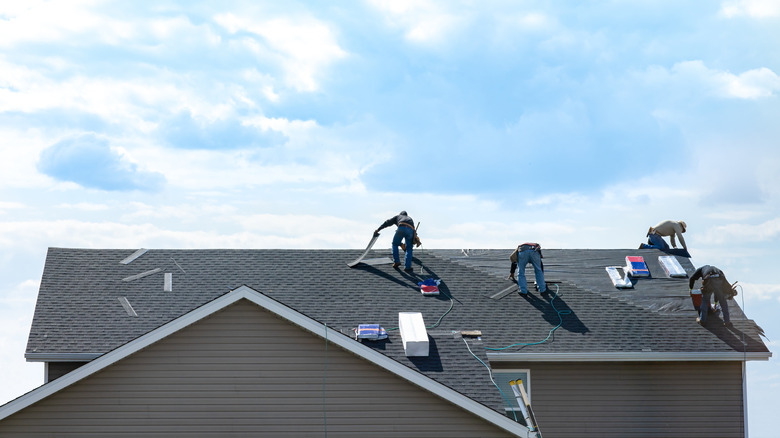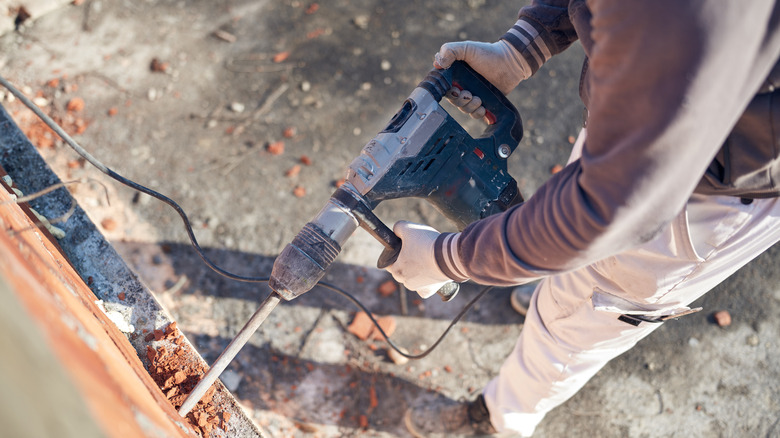Can You Really DIY This Or Should You Call A Pro?
DIY projects are becoming increasingly popular in the modern age of homeownership. In decades past, many people enjoyed working on their own renovations and repairs, but this has fallen away in part because of rising expertise in the contracting space and a general level of affordability. So rather than spending time on home improvement, hiring a professional to tackle the job is more cost-effective.
Yet, a surge in self-sustainability has been brewing for many years, and homeowners are looking to reimagine their homes without assistance once more. DIY work can save you a considerable amount of money if you plan out the project and take the time to handle materials and labor yourself. However, there is a subset of home improvements that you should still hire a pro to tackle.
The Washington Post recommends engaging in smaller repairs, personalizations, and other similar updates but leaving anything that needs permitting to a professional. If your update requires a permit, there's a good chance it involves specialized equipment requirements or safety considerations that you are likely unprepared to handle. It may be worthwhile to think through how you might approach the project, but at the end of the day, hiring a pro is your best bet in these situations. The following instances are some instances.
Anything involving the electrical systems
Electrical work is dangerous and involves some specific safety gear and knowledge to complete successfully and without incident. If you haven't been trained as an electrician, you shouldn't engage in electrical system work on your own. The Washington Post notes that the risk of electrocution is high for those who aren't trained in the field. As well, the feasible worst-case scenario here is significantly more dramatic than that of a paint job gone wrong, for instance.
Hazardous work is best left to the professionals because of the dire safety concerns, but also as a result of the complexity of the task on its own. Mr. Handyman notes that it's crucial to critically assess your actual ability to perform home improvement tasks.
You should take this step, regardless of the project you're thinking of engaging in, but when it comes to specialized work, the advice hits home with greater force than in repairs involving straightforward skills like sanding a stained wood surface or repairing a small hole in the wall. Electricity should be a no-go for most homeowners out of a healthy fear of mortality and an understanding of DIY skill limitations.
Added rooms
Adding a room to your property is a big job, and it involves a variety of sub-skills that are often outside the scope of most homeowners' abilities. For example, you might be able to pour the foundation or set the drywall with great confidence, but many of the other tasks involved in bringing a new addition together take expertise in skills that you simply won't have mastered.
Contractors spend years honing their abilities, and in a large-scale job like this, general contractors often hire a team of subcontractors with specialized skills in each realm of the project (for instance, a window specialist, drywall and spackle pro, and an electrician to run the wiring).
Mr. Handyman notes that a room addition requires specialized tools and knowledge that home DIYers won't have unless they work in the field themselves. What's more, many of the required materials and steps in the process of crafting a new room and adding it to the floorplan will demand significant physical effort. For example, you may have great skill with a saw or drill, but when it comes to balancing a heavy beam while fastening other planks, baseline skills and physical strength typically won't cut it.
Roofing repairs
The roof is another home component that doesn't make sense to tackle on your own. Not only do roofers bring specialized equipment to the job site, but they also engage in installations and repairs that are crucial to maintaining the overall structure and integrity of a home. Your roof is the first line of defense against moisture, wind, and other natural elements from the exterior. It also helps secure your home against the threat of pests, and it traps conditioned air inside the property to help regulate a comfortable living space within the home.
The trouble caused by a shoddy roof installation is immense and crosses many different functional lines. This is why roofing repairs are such a big deal and should never be put off. Instead, Browns Ladders recommends that a professional roofer should always do the repairs or replacements because they know what to look for in terms of wear patterns and damage. In addition, professionals have developed an understanding of how to effectively seal off the roof, stopping the threat of weather and pest-based problems in their tracks.
Of course, working on the roof comes with its own challenges, too. Roofing takes many hours stretched across a few days' work, all out in the hot sun. And roofing work necessarily must be done on top of the property. Combined, these features make the workspace a potentially dangerous place for an individual with little to no experience in roofing repairs.
Major renovations of nearly any kind
A major renovation may fall within your wheelhouse, but it's often a good idea to hire a professional because of the sheer time commitment that any significant home improvement project will demand of you. A bathroom remodel, for instance, may focus on tiling, vanity installation, and other luxurious installations that you have experience with. Yet, removing existing fixtures, securing new features, and finalizing the project can take weeks to complete when working around your existing schedule.
A good rule of thumb is found in the advice given by The Washington Post: Consider the DIY option on projects that don't require a permit. Another good threshold to consider lies in whether you already own the tools required to complete the job (via A Crazy Family). A homeowner who enjoys taking up the crafting mantle themselves definitely has a robust set of tools already in the garage or shed. If you would have to purchase new equipment to get the job done, it may be a little more technically demanding than you are ready to handle.
It's typically never a bad idea to hire a professional, so flesh out your limits and don't be afraid to call for help when the project at hand runs past your level of knowledge and confidence.





